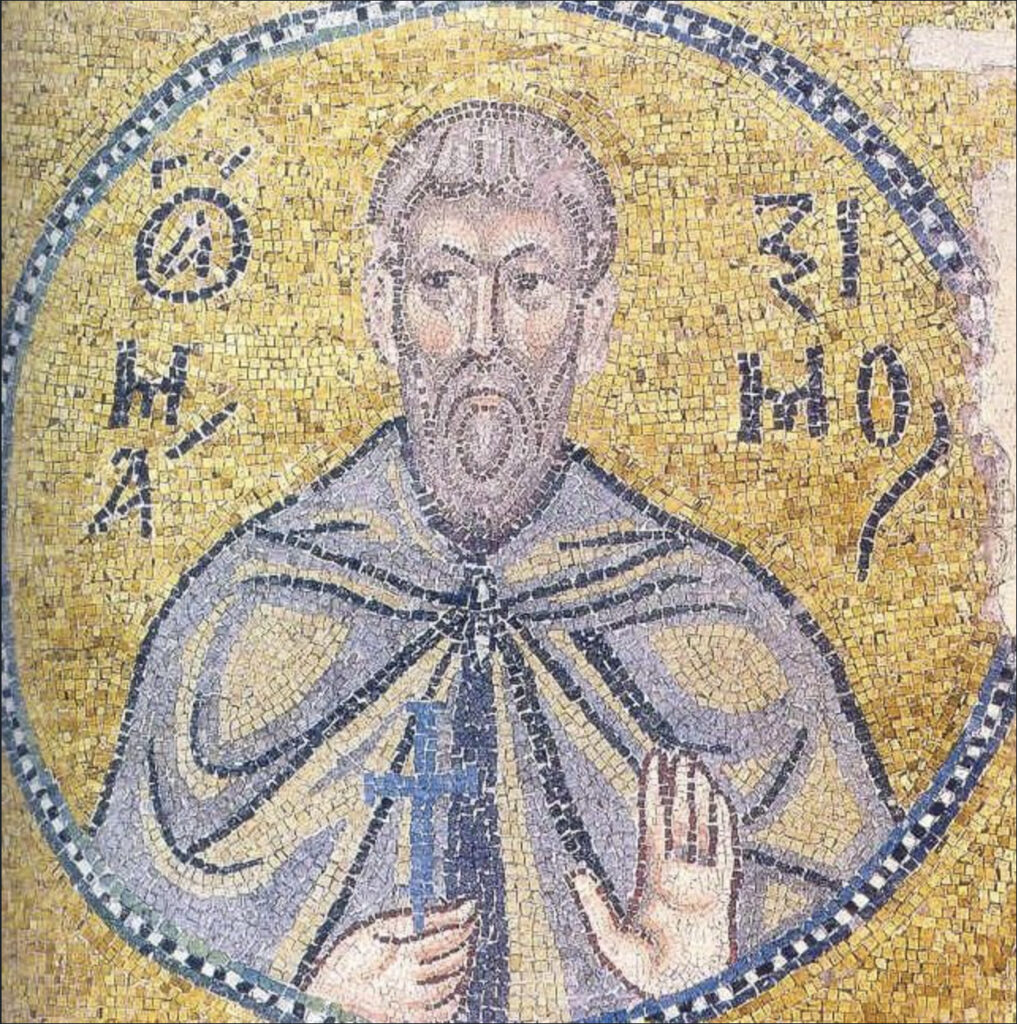
Maximus acquired the nickname “confessor” because he confessed the truth about Christ at the cost of his comfort. Born somewhere in the Middle East around 580, he became the secretary of Emperor Heraclius. In 626, he abruptly left the imperial service and joined the monastery at Philippicus across the straits from Constantinople. There he soon became abbot.
As Christians tried to understand Christ’s two natures, a view called monothelitism gained ground. This taught that Christ’s divine will had swallowed up his human will. Maximus opposed this. If Christ was not fully human, he could not save us. With Islam rising, Emperor Constans II feared religious disunity. He ordered everyone to accept compromises set forth in writings called the Ecthesis and the Typos. Although many bishops signed on, Maximus rejected both.
In 655, when Maximus was about seventy-five years old, Constans exiled him to Thrace. He blamed him for the Muslim conquest of the empire’s North African territories! In exile Maximus suffered hunger and cold. The emperor sent Theodosius of Caesarea to change the abbot’s mind. Theodosius charged Maximus with pride: “You think that you are the only Orthodox theologian, the only person being saved, and that everyone else is a heretic and perishing!”
Maximus vindicated his position from Scripture, adding, “God forbid that I should condemn anyone, or say that I alone am being saved. However, I would sooner agree to die than . . . endure the torments of my conscience.” He would not yield.
Three times the emperor shifted Maximus’s place of imprisonment. The moves caused the old man great suffering. According to one account, the emperor brought Maximus back to Constantinople for a final trial in 662. Church and state worked together to condemn him. His tongue cut out, and his right hand lopped off, he was sent to a northern prison where he soon died.
A prolific writer, Maximus produced over forty books. Both the eastern and the western churches consider him a saint. The Sixth Ecumenical (universal) Council vindicated his views. Christ indeed has two wills— the human and the divine. Maximus represents martyrs who suffer from fellow Christians for insisting on essential doctrines.
And when [the regional bishop] has flogged [two companions of Maximus] he is to cut out from inside your mouth the organ of your licentiousness, Maximus . . . that is your blaspheming tongue. Then he is to sever with his sword your sinister right hand because it ministered to your blasphemous argument. When you have been led around after the amputation of your abominable limbs, he is to walk around the twelve sections of this sovereign city, and to hand you over to lifelong exile and, what is more, permanent custody, so that afterwards . . . you will bewail your own blasphemous errors.”
Adapted from Maximus the Confessor and His Companions: Documents from Exile. United Kingdom, OUP Oxford, 2003. p. 119
